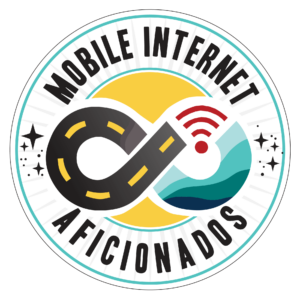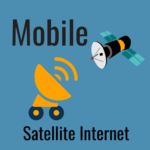Though the FCC voted to approve sweeping new "Network Neutrality" rules back in February - the rules were not slated to go into effect until 60 days after they are officially published in the Federal Register.
That clock started ticking yesterday - the rules have now been published, with an effective date of June 12th, 2015.
The official rules publication also opens the door for lawsuits - and immediately the USTelecom trade organization (representing Verizon and AT&T amongst others) filed a lawsuit to block the rules. Today further trade organizations piled on with additional lawsuits, and a band of Republicans in congress began efforts to fast track an official "Resolution of Disapproval" that would cancel the new rules entirely.
The fight over this divisive issue rages onward - and one way or another, mobile internet users will feel the impact.
What Are "Network Neutrality" Rules Aiming To Do?
The core "bright line rules" for both mobile and fixed broadband are as follows, according to the FCC:
- No Blocking: broadband providers may not block access to legal content, applications, services, or non-harmful devices.
- No Throttling: broadband providers may not impair or degrade lawful Internet traffic on the basis of content, applications, services, or non-harmful devices.
- No Paid Prioritization: broadband providers may not favor some lawful Internet traffic over other lawful traffic in exchange for consideration – in other words, no “fast lanes.” This rule also bans ISPs from prioritizing content and services of their affiliates.
These all seem like good ideas - but they do substantially limit the business models that internet providers can pursue.
Hypothetically - should a carrier be able to make 'Bing' an official search engine, and redirect all web searches to 'Bing' results? Or offer an unlimited data plan that blocks Netflix entirely, but allows HBO? Or maybe provide free cellular service, but limit Internet access only to Facebook?
There are plenty of hypothetical scare stories offered up, from both sides.
And the devil, as always, is in the details - with 583 pages of official regulations, explanations, and dissension now published.
Only time will tell how the FCC will actually enforce these rules, and how the courts and congress will impact them.
One thing the FCC makes clear however: "The Order will not impose, suggest or authorize any new taxes or fees."
Who Should RVers Cheer For?!?
As a consumer and an RVer - it probably comes down to your own personal beliefs on who you trust to be looking out for your best interests: Verizon (and the like), or the FCC.
It is a tough call for many - and there is room for honest disagreement.
There is also clearly a lot of room for hyperbole and fear mongering and knee-jerk partisanship.
As the actual impacts for the mobile internet and RV world start to shake out, we will keep covering them here on the RV Mobile Internet Resource Center.
Further Reading:
This is indeed a very complicated issue. Here are a few good articles on the subject, if you'd like to know more:
- Understanding “Network Neutrality” – Implications For Mobile Internet
- Federal Register: Protecting and Promoting the Open Internet (the full ruling & dissent)
- The Oatmeal Explains Net Neutrality in a Comic (biassed, but funny)
NOTE: Comments that are focused on the politics of this issue are not appropriate here, and will be deleted. We are eager to hear your thoughts on how the changes are likely to impact mobile internet users however.








 Mobile Internet Resource Center (dba Two Steps Beyond LLC) is founded by Chris & Cherie of
Mobile Internet Resource Center (dba Two Steps Beyond LLC) is founded by Chris & Cherie of